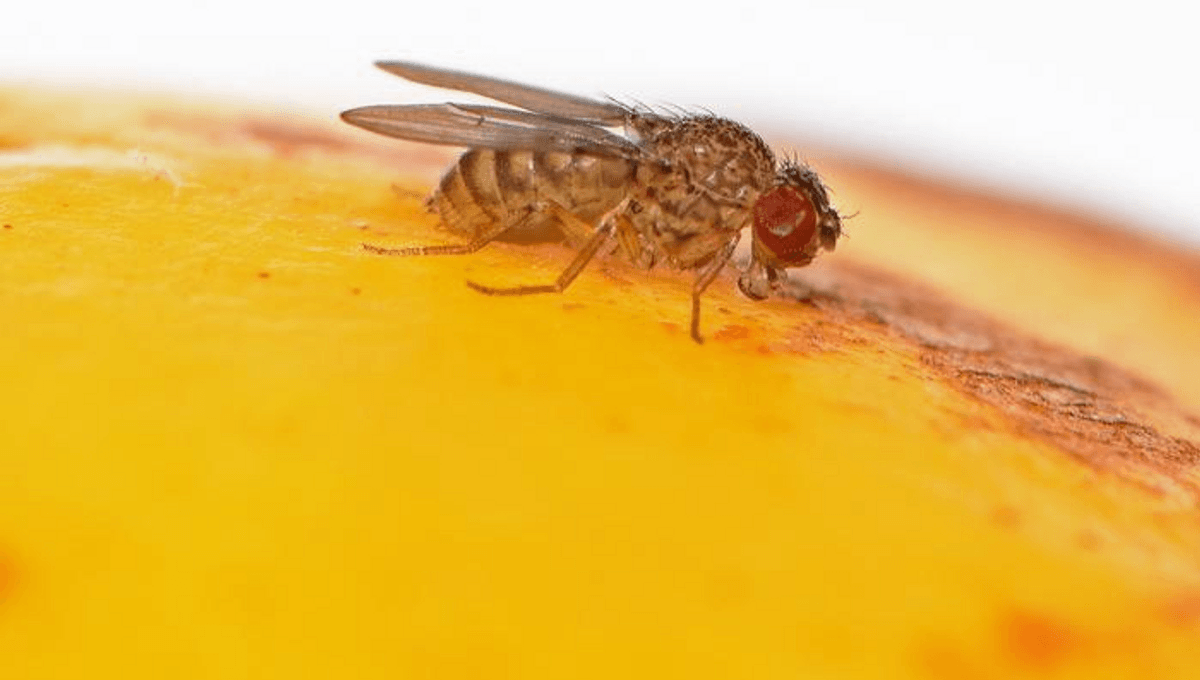
Across the animal queendom, some species do without sex, reproducing asexually. For some wasps and lizards this is a common thing. In other cases, it’s a rare resort for a female with no males – or at least no males she considers worth her time – around. Animals in captivity astonish their keepers now and then by being the first of their species to produce offspring despite having spent their adult life in single-sex enclosures, known formally as facultative parthenogenesis.
However, despite learning facultative parthenogenesis is more widespread than previously thought, scientists have not known how it is done at the genetic level. Now some have learned that, at least for fruit flies, three gene variations, Desat1, Desat2, and Myc, are crucial, and have managed to flick the switch in a normally sexual species, the model animal Drosophila melanogaster.
“We’re the first to show that you can engineer virgin births to happen in an animal,” said Dr Alexis Sperling of the University of Cambridge in a statement. “In our genetically manipulated flies, the females waited to find a male for half their lives – about 40 days – but then gave up and proceeded to have a virgin birth.” Scientists, taking the fun out of fruit fly lives since… well ages ago, really.
Besides demonstrating that it is possible to switch on parthenogenesis this way, Sperling and colleagues were interested to see whether the capacity is inherited. In some species, daughters born through asexual reproduction tend to give birth (or lay eggs) the same way.
That makes some sense. Most asexual reproduction leads to entirely female offspring, (a point Bible-believers might want to ponder). In an animal that doesn’t roam widely, the products of virgin birth may find themselves largely surrounded by other females, so it makes sense to keep up traditions.
Sperling found this holds for Drosophila as well, but only weakly. Even though they do not normally reproduce asexually, once the genetics had been triggered, between 1 and 2 percent of the products of virgin birth ended up reproducing the same way. None showed a preference for this type of single motherhood – the only ones who reproduced this way were those kept away from males. The team conclude that, in this case at least, virgin birth is a Hail Mary to keep the species going when there’s no alternative, not a preferred strategy.
Sperling’s team identified the relevant gene by studying the related species D. mercatorum, which has sexual and asexual strains. They sequenced the genomes of both and searched for the differences. Having identified the suspects, they altered D. melanogaster to match the asexual strain and found their targets were now able to produce fertile eggs without getting near a male.
Anyone wondering whether this means we are now on track to a world without men should not get their hopes (or fears) up. D. melanogaster competes with the worm C. elegans for the title of the most studied species in the history of genetics.
The authors don’t think they could currently repeat the feat in any other insect, let alone mammals, which the authors note have, “Sex-specific epigenetic marks that direct the […] parent-specific expression of around 150 genes, preventing the development of embryos with only a maternal genome.” Parthenogenic mice have been made, but even when their embryos were transferred to surrogates the success rate for survival to term was very low. In almost every other mammal this approach would face even more obstacles.
Others may question what is so important about the work it justified multiple scientists spending six years on the project. However, Sperling noted that many major pests use virgin births, and there is some evidence this is becoming more common.
“If there’s continued selection pressure for virgin births in insect pests, which there seems to be, it will eventually lead to them reproducing only in this way,” Sperling said. “It could become a real problem for agriculture because females produce only females, so their ability to spread doubles.” Understanding the genetic processes may be key to protecting our food’s future.
The study is published in Current Biology.
Source Link: Capacity For Virgin Birth Switched On In Fruit Flies That Normally Reproduce Sexually